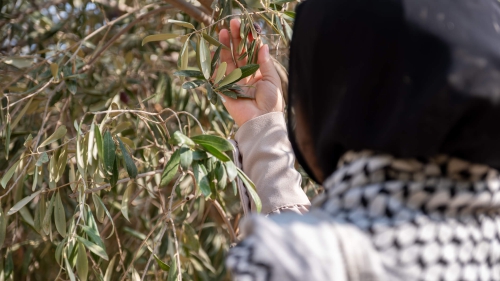Putting (Food) Safety First? The Ins and Outs of Food Recalls

According to the Centers for Disease Control and Prevention (CDC), over 128,000 people are hospitalized and 3,000 people die of foodborne illnesses each year. There are thirty-one pathogens known to cause foodborne illness, and people who are pregnant or who have weakened immune systems tend to be more at risk of contracting a foodborne illness.
What Causes a Food Recall?
There are a variety of factors that can cause a food recall, including the discovery of different organisms, bacteria, viruses, or parasites such as Salmonella, E. coli, listeria, and hepatitis A. The presence of potential or undeclared allergens, including wheat, soy, sesame, milk, or tree nuts, can also result in a recall, as well as the discovery of a foreign object such as glass or metal. All recalls are voluntary and can occur before or after an item has been made available for purchase by the public.
Most recalls tend to be precautionary as opposed to reactionary. If two or more people contract the same illness from the same food item, this is called an outbreak. However, recalls aren’t always issued, and when they are, they are sometimes issued weeks to months after an outbreak. For example, Politico reported that in March 2018, E. coli contaminated romaine lettuce, causing 210 people to fall ill and 96 to be hospitalized. Yet no recall was issued. In June 2020, Salmonella contaminated onions, sickening 1,127 people and hospitalizing 167. A recall was issued more than a month after people first became ill.
One of the most widely publicized recalls in recent years was Abbott Nutrition’s infant formula recall in February 2022. The formula was recalled five months after the first hospitalization was reported to federal health officials, Politico reports. Another of the most widely publicized recalls was Daily Harvest’s recall in June 2022 after consumers became ill from a French lentil and crumbled leek dish.
Who Regulates Food Safety?
Food recalls in the U.S. are issued by three different agencies: the Food and Drug Administration (FDA), the U.S. Department of Agriculture (USDA), and the CDC. The role of the USDA Food Safety and Inspection Service (FSIS) is to “ensure that meat, poultry, and egg products are safe, wholesome, and properly labeled.” Last year, the USDA FSIS introduced a new initiative to reduce the rate of Salmonella illnesses attributable to the poultry products they regulate by 25%.
The FDA regulates nearly all food items that are not regulated by the USDA, including dairy, produce, spices, nuts, cereals, flour, legumes, and more. Although the FDA has jurisdiction over almost 80% of the food supply, the agency’s main focus is on drugs and other medical products, and only 18.4% of the FDA’s total budget goes toward food.
The CDC’s role is to help connect food producers and food safety systems–including the FDA, USDA, and state and local health departments–to address foodborne illness. The CDC does this by utilizing surveillance systems and advanced technology, evaluating data, and collaborating with other countries and international agencies that track, investigate, and prevent foodborne illnesses.
Some nonprofit and advocacy organizations, such as the Center for Food Safety, are advocating for changes to the industrial food system to build more environmentally sustainable supply chains that produce safer food for people and the planet. Similarly, Food Print highlights some of the threats to public health and food safety posed by industrial agriculture and factory farms.
Halal & Food Safety
As a comprehensive quality management system, a proper third-party halal program provides oversight and increased transparency. Halal certification includes exhaustive ingredient reviews, independent onsite audits, and inspections of the manufacturing processes conducted by trained and certified professionals.
“The requirements for meeting halal and kosher guidelines and ensuring no cross-contamination between certified and non-certified products go well beyond FDA and USDA food safety requirements,” explains Dr. Muhammad Chaudry, president and CEO of IFANCA. This includes a zero-tolerance policy for porcine materials, and halal products are often produced in a dedicated facility or production line.
“Halal emphasizes more than just the source of ingredients: it encompasses a holistic approach to how our food is made,” says IFANCA Food Scientist Nooran Riaz. “Because halal focuses on the making of a product, the sourcing of ingredients, and the sustainability of the halal food chain from farm to point of delivery, it adds a level of traceability throughout the supply chain.”
IFANCA is a nongovernmental organization dedicated to promoting halal through certification, education, and creating awareness, as well as addressing food security, nutritional equity, and health. As a third-party certifier, IFANCA operates independently of ownership of the product and regulatory controls and is not generally impacted by recalls arising from negligence or lack of oversight since the responsibility for the recall lies with the producer of the product. However, IFANCA can force a recall if halal guidelines are not met or if a non-certified product carrying the IFANCA logo has entered the market, Dr. Chaudry explains.
Time for Change? Food Policy Experts Weigh In
Food recalls in the U.S. seem to be increasingly more common, which some experts, including Sandra Eskin, deputy under secretary for food safety at USDA FSIS, have said is because agencies have become better at identifying potential organisms, allergens, and foreign objects. However, the modus operandi of industrial agriculture and our current food system makes contamination of foods more likely, especially when crops and animals are produced on a mass scale and transported in large quantities throughout the country.
“Pretty much everyone concerned about food safety agrees that the issue is corporate culture. If safety is a corporate priority, recalls are less likely,” Dr. Marion Nestle, Paulette Goddard Professor of Nutrition, Food Studies, and Public Health, Emerita, at NYU Steinhardt, tells Halal Consumer. Dr. Nestle is the co-author of fifteen books, including Safe Food: The Politics of Food Safety.
Food policy reporter Helena Bottemiller Evich conducted an investigation of the FDA for Politico, in which she highlighted the agency’s shortcomings, including a lack of safety standards for water used to grow fresh produce, which should have been put in place after the Food Safety Modernization Act was passed by Congress in 2011. Water is one of the main ways that fresh fruits and vegetables become contaminated with pathogens.
“The FDA has rules requiring food companies to have safety plans in place but does not have the ability to check to make sure the rules are followed. The rules require testing for pathogens, but companies have no incentive to do so and every incentive not to. If they find something that shouldn’t be in a food, they have to recall it,” Dr. Nestle explains. “Few food companies have an excellent culture of food safety in which everyone involved in food production follows the rules in spirit as well as theory.”
Additionally, Dr. Nestle tells Halal Consumer that the FDA is “enormously underfunded and understaffed” when it comes to monitoring food safety. The USDA, on the other hand, is better funded, which Dr. Nestle says is one of the reasons that meat safety problems have diminished.
In July 2022, the Food Safety Administration Act of 2022 was introduced. The Act proposes establishing the Food Safety Administration under the Department of Health and Human Services (HHS). Additionally, the proposed Act would ensure that existing food programs within the FDA are consolidated and create a separate agency that is specifically responsible for regulating food safety within HHS. The Act is currently under review by the Committee on Health, Education, Labor, and Pensions.
Dr. Nestle is one of the proponents of establishing a single food safety system for human and animal food, which she says are closely related. “The first logical step would be to create a single food safety agency. There have been calls for this for decades with no real action,” she says.
How to Keep Yourself Safe
To learn whether a food has been recalled, visit the following pages:
- Recalls, Market Withdrawals, & Safety Alerts, which is updated regularly by the FDA. You can also sign up to receive email alerts.
- A list of recalled food items is listed on the CDC’s Foodborne Outbreaks webpage.
- Recalls and Public Health Alerts, published by the USDA FSIS.
According to the CDC, there are four key steps that consumers can take to keep themselves safe:
- Clean: Wash your hands and surfaces often.
- Separate: Don’t cross-contaminate.
- Cook to the right temperature.
- Chill: Refrigerate promptly. Perishable foods, including meat, seafood, dairy, cut fruit, some vegetables, and cooked leftovers, should be refrigerated within two hours. If temperatures are above 90°F, these foods should be refrigerated within one hour.
If you believe that you may have purchased a recalled food item, carefully read the recall notice and follow any product-specific instructions. You may be able to return the product to the store you purchased it from for a refund. Be sure to thoroughly clean all surfaces that the product touched.
Most importantly, make sure no one consumes the contaminated product. If you believe that a specific food product made you sick, you should report it to the corresponding regulating body and/or the company that produced and distributed the product.
As the food and health equity coordinator at IFANCA, Amelia Keleher advocates for expanding access to halal options in schools, on college campuses, and through federal nutrition assistance programs. Based in Portland, ME, Amelia is committed to cultivating sustainable and equitable food systems in her local community and beyond.
Reprinted from the Summer 2023 issue of Halal Consumer Magazine with permission from IFANCA and Halal Consumer Magazine.
















